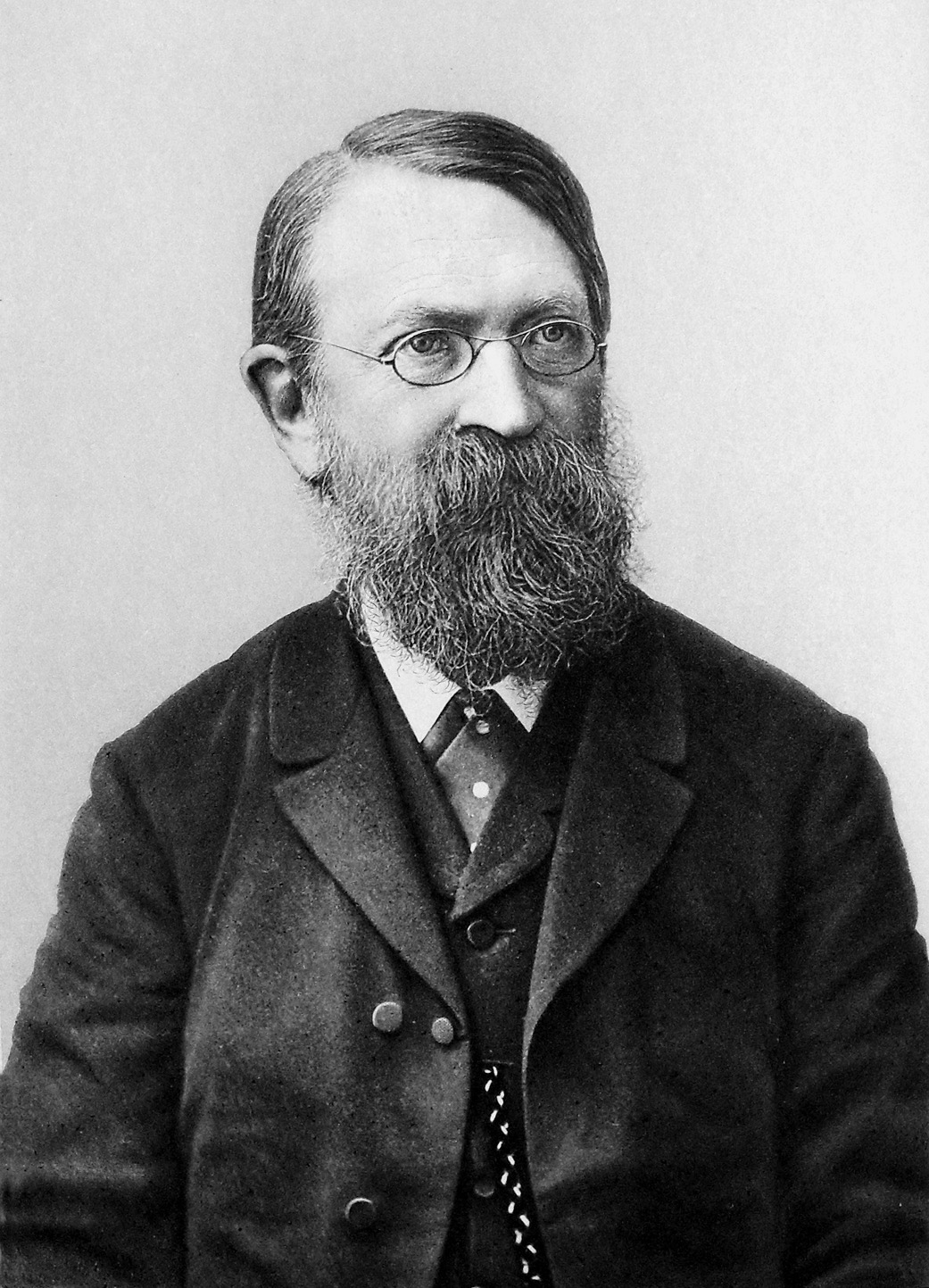Ernst Mach
"Materialism and Empirio-Criticism" must be the most boring work ever written. My sympathies go to the poor Czarist censor-bureaucrat who had to sift through this book before it was published. I tried to read it three times, but never managed to do the same. (I suspect the censor was cheating, too.)
In a way, however, I also empathize with the author, V.I. Lenin himself. (The book is actually Lenin's philosophical magnum opus.) "Materialism and Empirio-Criticism" is an attack on the philosophy of Mach, Avenarius and some of their epigones. It can hardly be denied that the empirio-criticists were full of crap. Lenin must have felt a great amount of frustration when attempting to prove that, really guys, there is such a thing as a mind-independent world. The Machists had great trouble explaining where the mind-dependent world might have been before the emergence of humans. Was the world dependent for its existence on the mind of an ichtyosaurus, a worm, or what? And what if humanity would disappear? Would the world disappear with it? Et cetera. Poor Nikolai Lenin, being forced to argue such trivial points with a bunch of ivory tower intellectuals. I suppose he later got his revenge - and his own censors!
Still, those parts of the work I somehow managed to read, contain obvious contradictions. Lenin regards dialectical materialism as absolutely true, and opposed to both metaphysics and relativism. According to dialectical materialism, there is such a thing as absolute truth somewhere "out there". Humans can never fully grasp this absolute truth (presumably because humans are finite). What they can do, however, is to constantly come closer and closer to it. With this sleight of hand, Lenin solves the contradiction between abstract metaphysics and pure relativism.
But how does Lenin know that materialism is true, if humans can never reach the absolute truth? Obviously, he doesn't. Yet, he vehemently insists on materialism actually being absolutely true. A regular atheist would presumably point to science as proof of the materialist pudding. But Lenin doesn't. Quite the contrary: he sharply rebukes science for not understanding the dialectical method. Thus, the absolute truth of Lenin's particular version of materialism is *not* based on scientific exploration. Therefore, it can only be based on philosophical speculation - i.e. metaphysics. Yet, Lenin claims to have rejected metaphysics! At one point, he calls dialectics a "method", but on what is this method based? How does the Bolshevik leader know that this "method" is the true method? After all, the scientists (including Mach) disagrees with it. Once again, it must be derived from metaphysical speculation. Which, of course, it is. Every child knows that the idea comes from Hegel.
When looking through "Materialism and empirio-criticism", I sometimes found myself wondering who Lenin really saw as his main opponent. On the surface, it's Mach, Avenarius and their epigones in both Germany and Russia. On a somewhat deeper level, the book is actually a factional document. Lenin was incensed at those Russian Marxists (including some Bolsheviks) who accepted empirio-criticism. He believed that a consistent revolutionary line must be based on dialectical materialism. Empirio-criticism was reactionary, bourgeois, etc.
However, it seems that Lenin had another and even deeper opponent as well. He considered Machism to be a form of subjective idealism. In its crypto- or pseudo-sollipsist form, idealism is (of course) crackpot. The only consistent way to defend subjective idealism is to claim that the subject is eternal.
And that's what we call God.
V.I. Lenin knew this very well. Indeed, one of his main objections to idealism - perhaps *the* major objection - is that it opens the door to "fideism", by which Lenin meant "clericalism". That is, organized religion. In order to appease the Czarist censors, Lenin replaced the loaded word "clericalism" with the more neutral-sounding "fideism", but he is obviously having religion in general in mind, not just specific clericalism. At the time, there was a pro-religious group even within Bolshevism itself, the "God-builders" around Lunacharsky.
The real point of "Materialism and empirio-criticism" is therefore to weed out religion. In Lenin's mind, idealism (at least subjective idealism) is on a slippery slope to a religious worldview, and for that reason every concession to Machism or Neo-Kantianism is philosophically pernicious.
I can't recommend this book. Only a sense of duty can carry the reader through "Materialism and empirio-criticism". The Book of Mormon and the Pauline epistles are (arguably) more exciting.
Fideism, anyone?

No comments:
Post a Comment